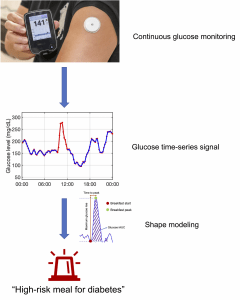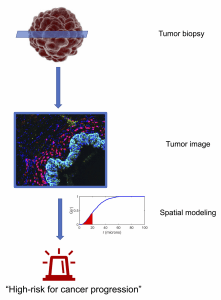Research Mission
My research goal is to contribute to the emerging field of digital health using data science models that are clinically meaningful, robust, and inclusive. My research aims to identify new data-driven biomarkers and generate novel clinical hypotheses from physiological time-series signals and images. I accomplish these goals through machine learning (ML), signal processing, and statistical analysis frameworks guided by clinical expertise.
Data-driven biomarkers and new data-driven clinical hypotheses can change healthcare in two fundamental ways:
1. Data-driven diagnosis and personalized treatment: With the unprecedented increase in computational power and storage capability in the last few years, it has become possible to build data-driven models using ML to find clinically meaningful signatures in medical data. For example, one of my research goals is finding signatures in glucose monitor data that can predict the likelihood of progression of diabetes. Previously, I have identified imaging signatures in various cancers that can help physicians personalize treatment strategies.
2. Understanding disease biology through data science: Over and above the most common ML task, prediction, my research seeks to uncover the biological phenomenon driving an ML model’s performance. For example, we have developed novel measures for continuous glucose monitoring sensors that can help scientists better understand the pathways of diabetes progression based on the time of day that abnormal glucose fluctuations start occurring. In cancer, my work has shed light on the importance of the spatial distribution of specific immune cell types in a tumor in cancer prognosis.
I have used data science to make novel discoveries in diabetes and cancer, which are highlighted below.



